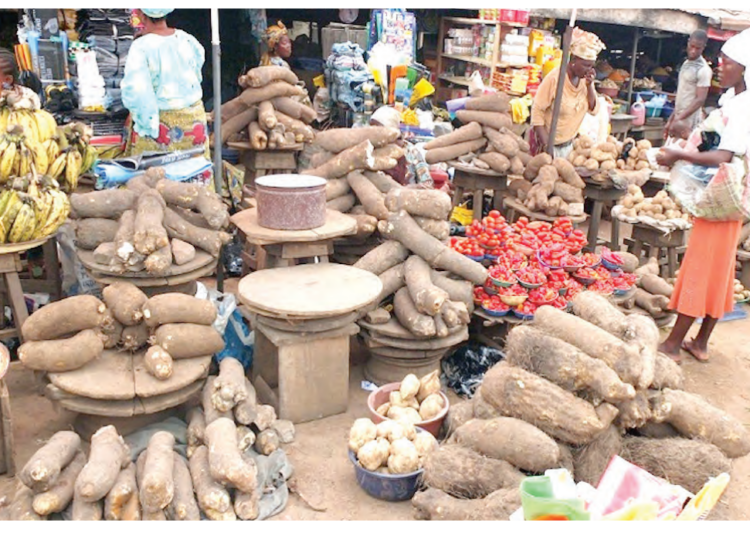An estimated 30.6 million Nigerians including 150,978 internally displaced persons (IDPs) across 26 states and the Federal Capital Territory (FCT) are expected to experience food crisis between June and August 2025.
The February – March edition of the food and nutrition security analysis in Nigeria, known as Cadre Harmonise (CH) released on Friday showed a decline of 2.5m people from the earlier projection in November 2024 where about 33.1 million Nigerians were forecasted to face acute food and nutrition insecurity within the same period.
Despite recent declines in food and commodity prices, the lean season is projected to push millions into severe food consumption deficits, primarily due to disrupted livelihoods caused by conflicts and insecurity, climatic shocks and the lingering effects of macroeconomic reforms by the federal government in 2024.
The report which is conducted by Federal Ministry of Agriculture and Food Security in collaboration with the Food and Agriculture Organisation of the United Nations (FAO) and other partners, also indicates that livelihoods and nutrition are under pressure with some of the most affected areas in Sokoto, Zamfara, Borno, Yobe and Katsina State.
Further analysis of the survey indicates that malnutrition rates are reaching alarming levels, particularly in the North-West and North-East.
Critical levels of acute malnutrition at phase four (4) have been recorded in several Local Government Areas including central Borno, northern Yobe and parts of Sokoto.
In the report, areas such as Mobbar and Nganzai in Borno, Mashi in Katsina and urban centers like Maiduguri and Jere are also facing dire nutrition crises with 178,000 people being children, pregnant and breastfeeding women from Abadam, Guzamala, Kukawa and Marte most at-risk.
The FAO raised concerns over worsening food insecurity in Nigeria with economic hardship, climate disasters and security challenges as major threats to livelihoods.
Speaking at the CH results presentation workshop in Abuja, FAO Country Representative to Nigeria and ECOWAS, Kouacou Dominique Koffy, commended the federal government and CH stakeholders for their commitment to food security monitoring.
Koffy who was represented by his assistant, Salisu Mohammed, called on state governments and development partners to mobilise resources for full national coverage in the next assessment scheduled for October 2025.
“We must ensure that every vulnerable community is assessed so that no one is left behind. Without sufficient data, effective planning and response become impossible,” he stressed.
In his remarks, the Permanent Secretary, the Federal Ministry of Agriculture and Food Security, Dr Marcus Olaniyi Ogunbiyi, acknowledged the severity of the food crisis linked to economic instability.
Represented by the Director, Food and Strategic Grain Reserve, Engr Okpogidi Oyema, the permanent secretary reaffirmed the government’s commitment to implementing recommendations from the CH analysis, urging humanitarian agencies and donor organisations to align their interventions with the findings.
“We recognise the efforts of FAO, WFP, and other partners in expanding food security assessments. Moving forward, we must ensure these results are used to drive meaningful policy actions that address hunger and malnutrition,” Ogunbiyi stated.
The CH stakeholders, including WFP, UNICEF, Save the Children and Mercy Corps, called for sustained humanitarian activities in the affected areas and urged the importance of early warning systems in preventing full-blown food crises.











